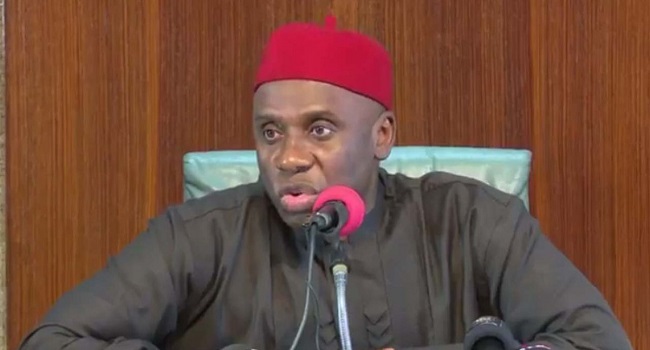News
Nigerian Govt. to pay N71bn as counterpart funding for six rail projects in 2021

The Federal Government is to pay the sum of N71.15 billion as counterpart funding for six rail projects that will connect all regions of the country in 2021.
This was contained in a report on selected projects in the 2021 budget of the Federal Ministry of Finance, Budget and National Planning which showed that the government has mapped out six key projects in the rail sector which it would partly fund this year.
The railway projects captured in the ministry’s report include the Lagos-Kano rail line, Calabar-Lagos rail line, Ajaokuta-Itakpe-Aladja rail line, Port Harcourt-Maiduguri railway, the new Kano-Katsina-Jibiya-Maradi line, the Abuja-Itakpe line and the Aladja-Warri Port and refinery/Warri new harbour.
Some of them are ongoing projects while some are yet to take off.
Minister of Transportation, Rotimi Amaechi had, on January 9, stated that the delay in the take off of the Ibadan to Kano line was because the Chinese government was yet to approve the $5.3bn loan Nigeria had requested.
Read also: Reps summon Amaechi, two other ministers over rail projects
He added that once the loan is approved and released, work on the line will commence immediately.
“We are waiting for the Chinese government and bank to approve the $5.3bn to construct the Ibadan-Kano. What was approved a year ago was the contract.
“We have not got the money, which is a year after we applied for the loan. We have almost finished the one of Lagos-Ibadan. If we don’t get the loan now, we can’t commence.”
Accoding to the Minister of Finance, Budget and National Planning, Zainab Ahmed, the government is optimistic that with the various interventions put in place, there would be significant improvement in the macroeconomic performance by the second quarter of 2021.
She added that the government was already implementing several measures to overcome the country’s fiscal constraints.
The minister explained that the goal of fiscal interventions would be to “keep the economy active through carefully calibrated regulatory and policy measures designed to boost domestic value-addition.”
She, however, noted that the federal government remained mindful of the need to provide safety nets to cushion the impact of reform measures on the vulnerable segments of the population.
Join the conversation
Support Ripples Nigeria, hold up solutions journalism
Balanced, fearless journalism driven by data comes at huge financial costs.
As a media platform, we hold leadership accountable and will not trade the right to press freedom and free speech for a piece of cake.
If you like what we do, and are ready to uphold solutions journalism, kindly donate to the Ripples Nigeria cause.
Your support would help to ensure that citizens and institutions continue to have free access to credible and reliable information for societal development.
























